UNESCO World Heritage property Kiyomizudera is best known for its wooden terrace that is also the object of focus in many Kyoto photos. The temple is frequented by both tourists and locals alike looking to enjoy the view of and from the deck and to experience the miracle spring water.
Table of Contents
- Introduction to Kiyomizudera
- Exploring the Grounds of Kiyomizudera
- Access, Opening Hours, Admission Fees
- Takeaway
Introduction to Kiyomizudera
History
Kiyomizudera was first founded in 778 during the Nara Period. The temple is dedicated to Kannon Bodhisattva. Otowa Waterfall and its spring that flows to the temple is the temple’s namesake, Kiyomizu 清水 meaning pure water. The spring is also partly the reason for the temple’s establishment by Sakanoue no Tamuramaro.
The temple has suffered up to 10 incidents of fire destruction. Many of its current existing buildings are actually reconstructions, and the pagoda was only added at a much later time. The wooden terrace is the most well-known part of the temple. In earlier days, there was a belief that surviving a jump from the terrace would mean having one’s wish granted. For obvious reasons, this practice was banned.
※ World History Encyclopedia, "Kiyomizu-dera" ※ Kiyomizu-dera Temple, "Learn"
One of the UNESCO World Heritage Site
Kiyomizudera is the 4th, amongst 17, registered UNESCO World Heritage Sites in the collection of “Historic Monuments of Ancient Kyoto”.
For some of the other sites that we’ve covered:
※ UNESCO World Heritage Centre, "Historic Monuments of Ancient Kyoto (Kyoto, Uji and Otsu Cities)"
Writer's Pick
Exploring the Grounds of Kiyomizudera
Now that we have a brief understanding of Kiyomizudera and its valuable status as a World Heritage Site, let’s have a look at what exactly makes this Buddhist temple so special and beautiful in people’s eyes.
Awe-inducing Architecture
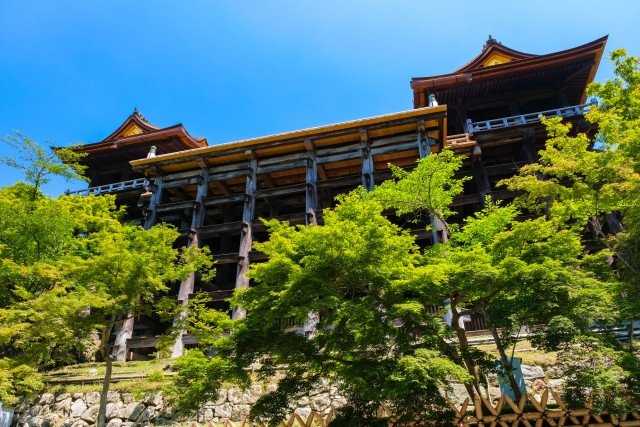
The main hall and its wooden stage is not just a marvel of architecture but an incredible feat of civil engineering considering it was built such a long time ago. The grand terrace structure was built purely out of wood and held together without any nails. Supported by 18 Japanese elk tree pillars ageing hundreds of years all positioned to form a weight-supporting frame, it is a wonder that it can support the number of tourists that visit.
But that’s not all, as the design and structure of the Main Hall and the other buildings are all of a time long past.
Main Hall and the Wooden Terrace
Famously known as Kiyomizudera’s wooden terrace, the main hall’s stage is the defining image of Kiyomizudera. A picture is worth a thousand words, so here’s one that you may judge its majestic beauty for yourself.
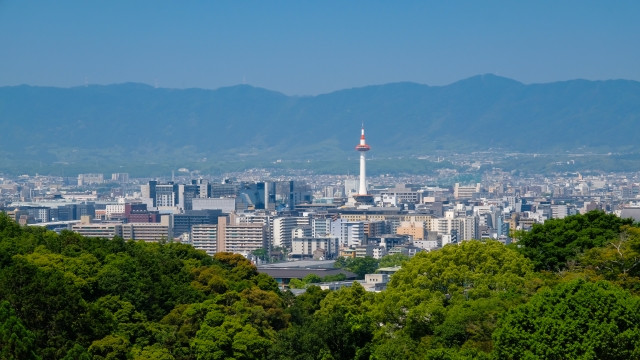
From the stage, you can enjoy a grand view of Kyoto City. The best times to visit are in spring when the cherry blossom trees below the terrace are in full bloom and in autumn when the trees turn red, adding a splash of resplendence to the already beautiful scenery.
※ Kiyomizu-dera Temple, “Main Hall”
Otawa Waterfall
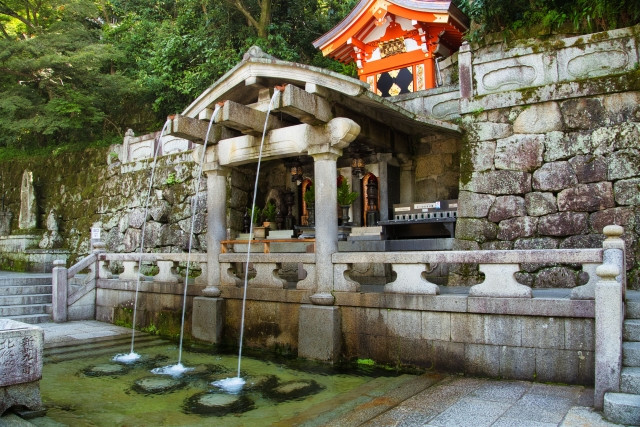
Beneath Okuno-In Hall, which is also similar in appearance to the main hall with a less grand wooden terrace, is Otawa Waterfall. This waterfall and its spring is not only the namesake of Kiyomizudera but also plays a huge part in the temple’s establishment. The waterfall is split into three streams with each granting its own miraculous benefit - namely love, academic success, and longevity. Using a long ladle, many visitors drink from the streams in hopes of being blessed and to purify themselves. Drinking from all three streams is a big no-no as it shows greediness. (Plus with the huge line of tourists behind you, it’s mindful to only drink once.) The view from Okuno-In Hall above is also quite a sight, so make sure to climb up there too.
Joju-In Garden
Also known as the “Moon Garden”, Joju-In Garden is proclaimed as one of the most beautiful gardens in Kyoto. The best time to visit this garden is at night or late evening when the moon is out, hence its nickname. The quiet tranquillity of this night garden made even more perfect on a night with a full moon is hard to miss when visiting the temple - but it’s also an exclusive experience. Being able to visit the Moon Garden requires both luck and good planning as it is usually closed to visitors. Only at certain times of the year will the garden be open to visitors, so check the link below for the schedule. If you’re lucky, night-viewings may be available.
※ Kiyomizu-dera Temple, “Special Viewing of the Jojuin Garden”
West Gate
The West Gate offers a great view of the sunset. As mentioned on the temple’s official website, it is the best place to perform Nissokan, a meditation practice. For more about Nissokan, including a short video of the sun setting as seen from the West Gate, check the link below.
※ Kiyomizu-dera Temple, “Nissokan”
Seasonal Views and Night Illumination
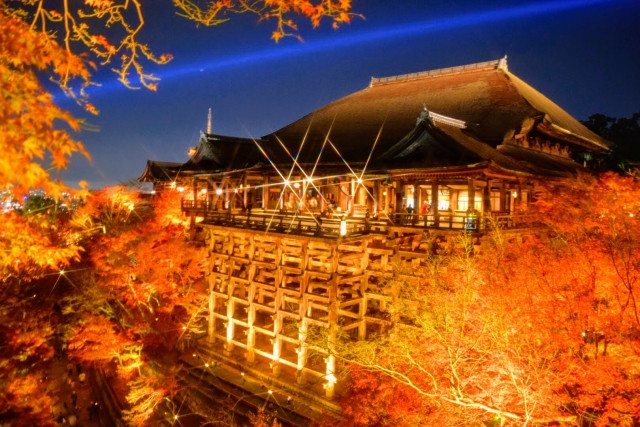
As mentioned above, the best times to visit are in spring and autumn for sakura and autumn foliage. Well, during these times, the temple also holds special night viewing sessions. During these times, the temple closes later at 9pm to allow visitors the opportunity to enjoy the sights. Beautifully illuminated cherry blossoms and red maples leaves with a contrast against the dark night sky is an experience you will never forget. Check the link below for the annual calendar of events.
※ Kiyomizu-dera Temple, “Visit - Events & Rituals”
Access, Opening Hours, Admission Fees
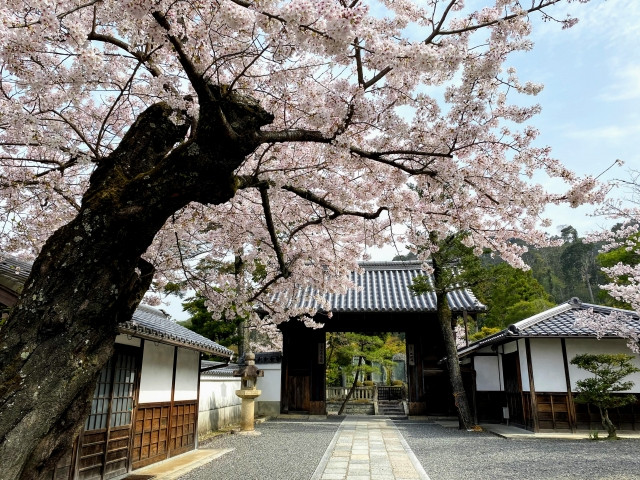
Access by Bus
The best way to get around Kyoto, including reaching Kiyomizudera, is by bus. The nearest bus stop to the temple is Gojozaka. From Kyoto Station’s Bus Terminal, it will take roughly 18 minutes to make the trip. You’ll need to walk another 10 minutes to reach the temple.
Opening Hours
6:00~18:00
The exception is during special night viewing events when the temple closes at 21:30 with the last entry being 30-mins before at 21:00.
※ Kiyomizu-dera Temple, “Location”
Admission Fees
400 yen (Adults), 200 yen (Junior High/Elementary School Students)
※ Kyoto City Official Travel Guide, "Kiyomizu-dera Temple"
Takeaway
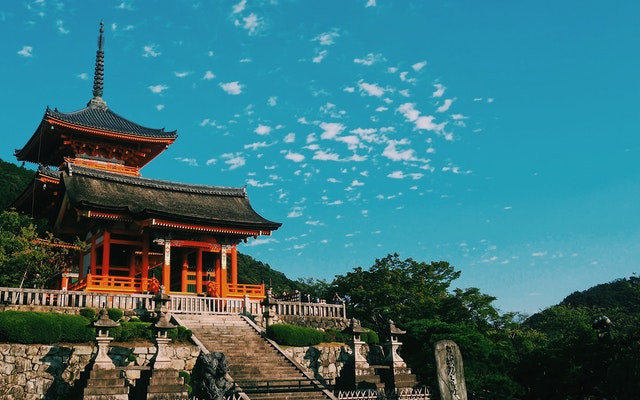
Kiyomizudera is a highly celebrated and extremely popular Buddhist temple in Kyoto. Along with Kinkakuji, it is one of the top places to visit in Kyoto. Many people including those not of the Buddhist faith visit just to enjoy the scenery. We recommend visiting early as considering its popularity, the temple gets crowded as it gets later in the day.






























